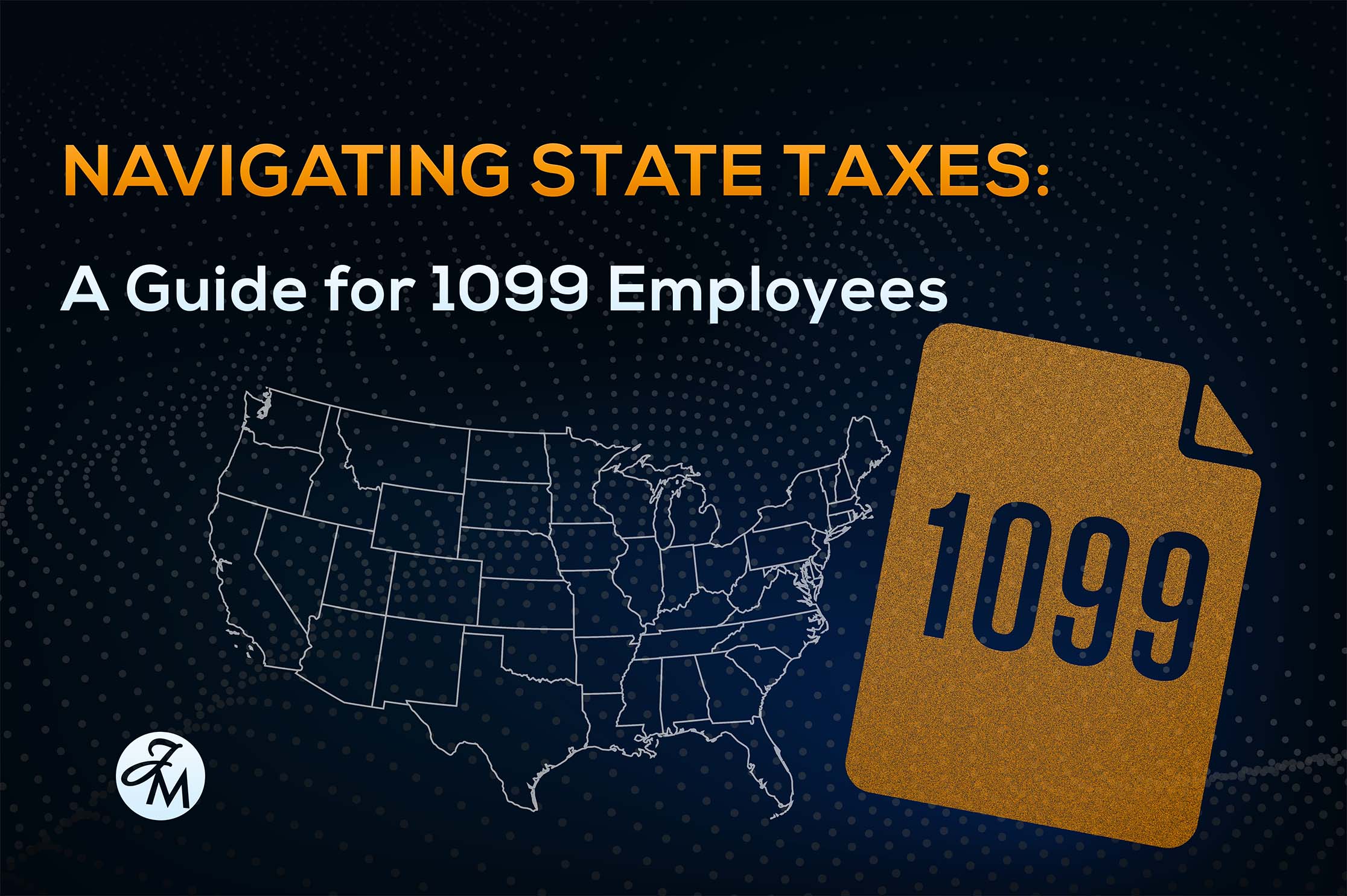Understanding State Taxes
State taxes vary significantly across the United States. While some states have no income tax, others have progressive tax rates that can affect your earnings. As a 1099 employee, it’s essential to understand the tax regulations in your state to ensure compliance and avoid penalties.
Key Considerations for State Taxes
- State Income Tax Rates
Each state has its own income tax rates and brackets. States like Florida, Texas, and Nevada have no state income tax, while others like California and New York have higher tax rates. It’s important to know the specific rates and how they apply to your income.
- Estimated Tax Payments
As a 1099 employee, you may need to make quarterly estimated tax payments to your state. This is because taxes are not withheld from your earnings like they are for traditional employees. Failing to make these payments can result in penalties and interest.
- State-Specific Deductions and Credits
Some states offer deductions and credits that can reduce your tax liability. These can include deductions for business expenses, health insurance premiums, and contributions to retirement accounts. Check your state’s tax website or consult with a tax professional to identify any available deductions and credits.
- Filing Requirements
Each state has its own filing requirements and deadlines. Ensure you know the due dates for your state tax returns and any additional forms that may be required for independent contractors.
- Local Taxes
In addition to state taxes, some localities impose additional taxes on income. Be sure to check if your city or county has any local tax obligations that apply to your freelance work.
Steps to Manage Your State Tax Obligations
- Keep Detailed Records
Maintaining detailed records of your income and expenses is crucial. Accurate records help you calculate your taxable income and ensure you claim all allowable deductions. Use accounting software to track your earnings and expenses throughout the year.
- Calculate Your Estimated Payments
Estimate your state tax liability based on your projected earnings for the year. Divide this amount by four to determine your quarterly estimated payments. Make sure to send these payments to your state tax authority on time to avoid penalties.
- Understand Your State’s Tax Forms
Familiarize yourself with the tax forms required by your state. Most states have specific forms for independent contractors, such as state income tax returns and estimated tax payment vouchers.
- Seek Professional Help
If you’re unsure about any aspect of your state tax obligations, consider consulting with a tax professional. They can provide guidance on state-specific tax laws and help you ensure compliance.
Common Challenges and How to Overcome Them
- Varying Income Levels
As a freelancer, your income may fluctuate throughout the year, making it difficult to estimate your tax liability accurately. To mitigate this, base your estimated payments on a conservative projection of your earnings.
- Navigating Complex Tax Laws
State tax laws can be complex and subject to change. Stay informed by regularly checking your state’s tax website or subscribing to updates from a tax professional.
- Managing Cash Flow
Ensuring you have enough cash on hand to make quarterly estimated payments can be challenging. Create a separate savings account for your tax payments and set aside a portion of your income each month to cover your tax liabilities.
Conclusion
Navigating state taxes as a 1099 employee requires careful planning and attention to detail. By understanding your state’s tax rates, making timely estimated payments, and keeping accurate records, you can fulfill your tax obligations and avoid costly penalties. If you find state tax management overwhelming, don’t hesitate to seek professional assistance. Proper tax planning not only ensures compliance but also helps you keep more of your hard-earned money.
If you are interested in getting a head start on your taxes, Hatchitt.com has tax professionals well versed in the needs of independent contractors. Click HERE to schedule a meeting with a tax professional today!
Do I need to pay state taxes if I'm a 1099 employee?
Yes, as a 1099 employee, you are responsible for managing your own state taxes. The requirements vary by state, with some states having no income tax and others having progressive tax rates.
How do I know if I need to make estimated tax payments?
If you are a 1099 employee, you typically need to make quarterly estimated tax payments to your state because taxes are not withheld from your earnings. Failing to make these payments can lead to penalties and interest.
Are there any state-specific deductions or credits I should be aware of?
Yes, some states offer deductions and credits that can reduce your tax liability, such as deductions for business expenses, health insurance premiums, and retirement contributions. It's important to check your state’s tax website or consult with a tax professional to identify any available deductions and credits.
What are the filing requirements for 1099 employees?
Each state has its own filing requirements and deadlines for tax returns and additional forms required for independent contractors. Make sure you are aware of the due dates and necessary documentation for your state.
How can I manage my state tax obligations effectively?
To manage your state tax obligations effectively, keep detailed records of your income and expenses, calculate your estimated payments accurately, understand your state’s tax forms, and consider seeking professional help if needed. Additionally, be aware of any local taxes that may apply to your freelance work.

